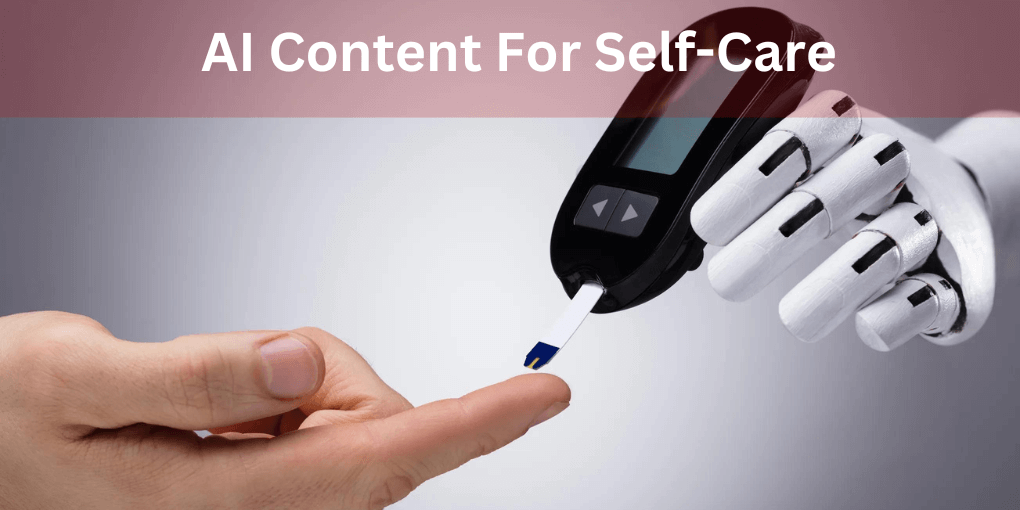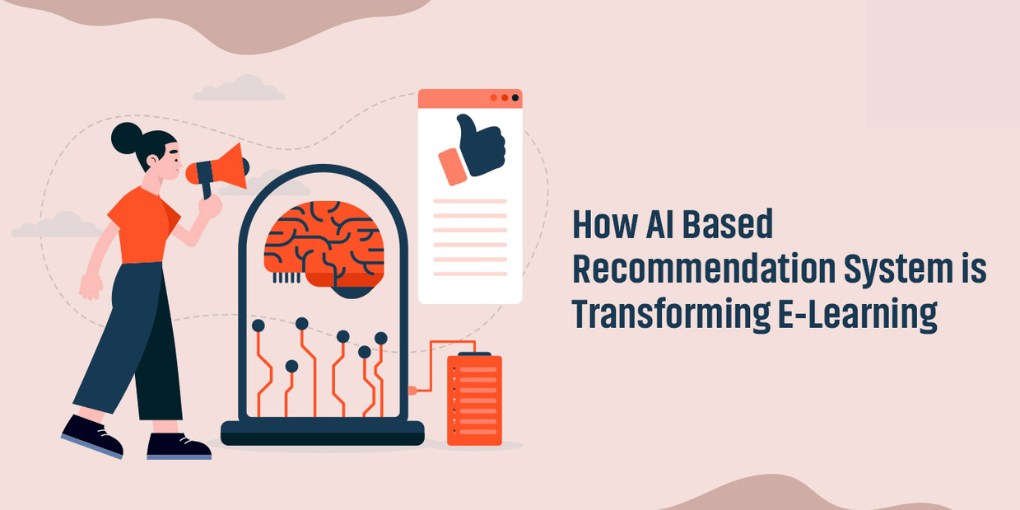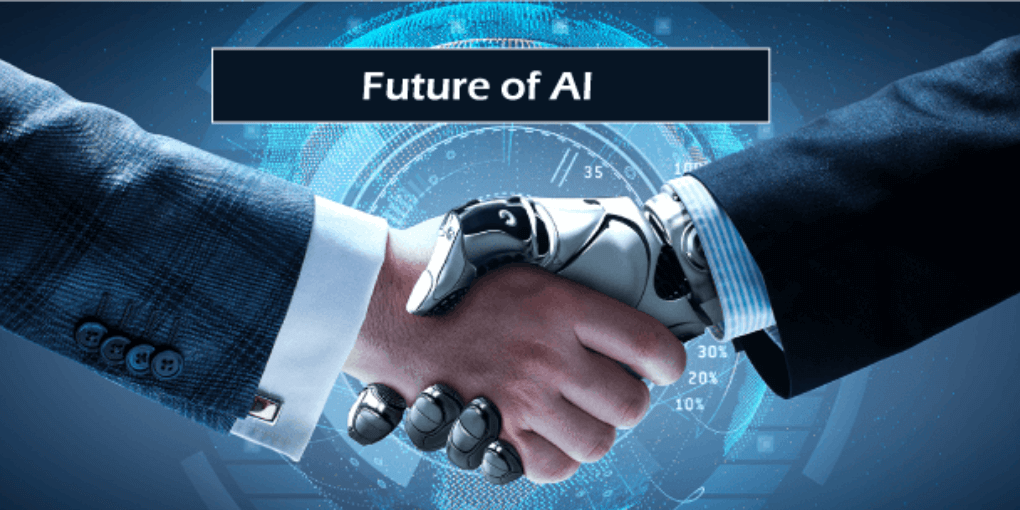
Self-care is the practice of taking deliberate actions to maintain and improve one’s physical, mental, and emotional well-being.
In today’s fast-paced world, it can be challenging to prioritize self-care amidst various responsibilities and commitments.
However, advancements in artificial intelligence (AI) have introduced innovative ways to integrate self-care practices into our daily lives.
This article explores the role of AI in self-care and highlights how AI-powered tools and applications can support and enhance our overall well-being.
Understanding Self-Care and Its Importance
Self-care encompasses activities that promote self-renewal, relaxation, and stress reduction.
It involves nurturing oneself physically, mentally, and emotionally to achieve a balanced and fulfilling life.
Engaging in self-care not only benefits individuals but also enhances their ability to contribute positively to society.
It is crucial to prioritize self-care as it helps prevent burnout, reduces stress levels, improves overall health, and enhances productivity.
The Role of AI in Self-Care
Artificial intelligence (AI) plays a significant role in advancing the practice of self-care.
Through its powerful capabilities, AI brings forth innovative tools and applications that support individuals in their journey toward better well-being.
By harnessing AI technologies, self-care practices become more accessible, personalized, and effective. Let’s explore some of the key contributions of AI in self-care:
Personalized Recommendations
AI algorithms can analyze vast amounts of data, including personal health records, fitness data, and lifestyle choices.
With this information, AI can generate personalized recommendations tailored to an individual’s specific needs and goals.
Whether it’s suggesting a meditation practice, offering nutritional guidance, or providing exercise routines, AI helps individuals optimize their self-care routines based on their unique requirements.
Automated Assistance
AI-powered applications automate various aspects of self-care, making it easier for individuals to incorporate self-care practices into their daily lives.
For instance, smart reminders can prompt individuals to take breaks, hydrate, or engage in relaxation exercises.
AI chatbots can provide instant support and guidance, answering questions and offering suggestions for self-care activities.
These automated systems ensure that self-care becomes a seamless part of individuals’ routines.
Behavior Tracking and Insights
AI technology enables accurate and real-time tracking of various health and well-being parameters.
Whether it’s monitoring sleep patterns, tracking exercise performance, or assessing stress levels, AI-powered tools provide individuals with valuable insights into their behaviors and habits.
This data-driven approach empowers individuals to make informed decisions about their self-care practices, helping them identify areas that require improvement and measure their progress over time.
Emotional Support and Mental Well-being
AI-powered virtual assistants and chatbots offer a source of emotional support and mental well-being guidance.
These virtual companions can engage in conversations, actively listening to individuals’ concerns and providing empathetic responses.
By leveraging natural language processing and sentiment analysis, AI systems can offer appropriate resources, coping strategies, and relaxation techniques to support individuals in managing stress, anxiety, and other emotional challenges.
Predictive Analytics
AI algorithms can analyze historical data and patterns to predict potential health risks or trigger points for individuals.
By identifying early warning signs, AI can alert individuals to take preventive actions and seek appropriate professional help.
This proactive approach empowers individuals to prioritize their well-being, preventing potential health issues and ensuring timely interventions.
AI-Powered Apps for Mental Well-being
In the pursuit of self-care, maintaining good mental well-being is paramount. Artificial intelligence (AI) has paved the way for the development of various apps and tools specifically designed to support mental well-being.

These AI-powered applications leverage advanced technologies to provide personalized assistance, guidance, and resources.
Let’s explore the benefits and features of AI-powered apps for mental well-being:
Emotional Support and Virtual Companions
AI-powered apps often include virtual companions or chatbots that offer emotional support and companionship.
These virtual entities engage in conversations, actively listening to individuals’ concerns, and providing empathetic responses.
By simulating human interaction, these apps create a safe space for individuals to express their emotions and seek guidance.
Mood and Emotion Tracking
AI apps can track users’ moods and emotions by analyzing their language, tone, and expressions.
By using natural language processing and sentiment analysis, these apps gain insights into individuals’ emotional states.
This information helps users gain a better understanding of their emotions, identify triggers, and track their mental well-being over time.
Guided Meditation and Mindfulness Practices
Meditation and mindfulness practices are effective self-care techniques for reducing stress and enhancing mental well-being.
AI-powered apps offer guided meditation sessions tailored to individual needs and preferences.
These apps utilize soothing voices, calming music, and relaxation techniques to help individuals achieve a state of mindfulness and promote relaxation.
Cognitive Behavioral Therapy (CBT) Techniques
Cognitive Behavioral Therapy is a widely recognized approach for addressing various mental health concerns.
AI-powered apps incorporate CBT techniques to provide individuals with self-help resources and strategies for managing negative thoughts, anxiety, and depression.
These apps can deliver interactive exercises, thought-challenging activities, and coping mechanisms based on CBT principles.
Personalized Recommendations and Resources
AI algorithms analyze user’s input, preferences, and behavioral patterns to provide personalized recommendations and resources for mental well-being.
These recommendations may include articles, podcasts, videos, or self-help materials that align with individuals’ specific needs and goals.
By curating relevant content, AI apps empower individuals to explore and learn about various aspects of mental well-being.
AI-Enhanced Fitness and Nutrition Tools
Maintaining a healthy lifestyle is an integral part of self-care, and artificial intelligence (AI) has revolutionized the way we approach fitness and nutrition.

AI-enhanced tools and applications offer personalized recommendations, tracking capabilities, and interactive features that empower individuals to optimize their fitness routines and make informed choices about their nutrition.
Let’s explore the benefits and features of AI-enhanced fitness and nutrition tools:
Personalized Fitness Recommendations
AI algorithms analyze individual’s fitness goals, preferences, and physical capabilities to provide personalized workout recommendations.
These tools take into account factors such as fitness level, available equipment, and time constraints to create tailored exercise routines.
By adapting to individual needs, AI helps individuals maximize their fitness potential and achieve their desired outcomes.
Real-time Performance Feedback
AI-powered fitness tools offer real-time feedback during workouts, enhancing the quality and effectiveness of training sessions.
By tracking movement, form, and intensity, these tools can provide instant guidance on technique correction, posture improvement, and optimal performance.
This feedback helps individuals optimize their workouts and reduce the risk of injuries.
Virtual Training and Coaching
AI-enhanced fitness tools often include virtual training and coaching features.
These tools simulate the experience of having a personal trainer by providing interactive workout sessions, exercise demonstrations, and motivational prompts.
Virtual trainers leverage AI algorithms to adapt workouts to users’ progress and preferences, ensuring engaging and customized training experiences.
Nutrition Tracking and Meal Planning
AI-powered nutrition tools help individuals track their dietary intake and make informed choices about their meals.
These tools can analyze food labels, provide nutritional information, and offer personalized meal planning based on dietary goals, preferences, and restrictions.
By monitoring nutrient intake, individuals can maintain a balanced diet and support their overall well-being.
Smart Food Recommenders
AI apps can suggest healthy food alternatives based on individuals’ dietary preferences, allergies, and nutritional needs.
By analyzing vast databases of recipes, ingredient profiles, and user preferences, these tools can recommend nutritious and delicious options that align with individuals’ goals.
This feature helps individuals discover new recipes, diversify their meals, and maintain a healthy eating routine.
The Future of AI in Self-Care
Artificial intelligence (AI) has already made significant advancements in the field of self-care, but its potential for the future is even more promising.

As technology continues to evolve, AI is poised to revolutionize the way we approach self-care practices, making them more personalized, accessible, and effective. Here are some exciting possibilities for the future of AI in self-care:
Enhanced Personalization
AI algorithms will become even more sophisticated in understanding individuals’ unique needs, preferences, and contexts.
By analyzing vast amounts of data, including genetic information, biometrics, and lifestyle patterns, AI will provide highly personalized recommendations for self-care practices.
These recommendations will consider individual traits, such as genetic predispositions, metabolism, and stress levels, resulting in tailored self-care plans that maximize well-being.
Integration of Multiple Data Sources
Future AI systems will integrate data from various sources, such as wearable devices, electronic health records, social media, and environmental sensors.
By aggregating and analyzing this diverse data, AI will gain a comprehensive understanding of individuals’ overall health and well-being.
This holistic approach will enable AI to provide more accurate and insightful recommendations for self-care, taking into account multiple factors that influence an individual’s health.
Continuous Monitoring and Feedback
AI will enable real-time, continuous monitoring of individuals’ health parameters, including physical, mental, and emotional well-being.
Wearable devices equipped with AI algorithms will track vital signs, sleep patterns, stress levels, and other relevant data.
This continuous monitoring will allow AI systems to provide timely feedback, personalized interventions, and proactive recommendations to optimize self-care practices and prevent potential health issues.
Emotional and Mental Health Support
AI will play an increasingly significant role in providing emotional support and mental health guidance.
Advanced AI algorithms will be able to recognize and respond to individuals’ emotional states and mental health needs.
AI-powered virtual assistants will engage in empathetic conversations, offer coping strategies, and provide resources for managing stress, anxiety, and other emotional challenges.
These AI companions will serve as trusted allies in individuals’ self-care journeys.
Virtual Reality (VR) and Augmented Reality (AR) Experiences
AI will enhance self-care experiences through immersive technologies like virtual reality (VR) and augmented reality (AR).
AI algorithms will create personalized VR/AR environments for relaxation, mindfulness, and visualization exercises.
These immersive experiences will transport individuals to tranquil settings, aiding in stress reduction, mental rejuvenation, and overall well-being.
conclusion
The future of AI in self-care holds immense potential for transforming how we prioritize and enhance our overall well-being.
Through advanced algorithms, AI will offer personalized recommendations, integrate data from multiple sources, and provide continuous monitoring and feedback.
AI will not only address physical health but also play a crucial role in supporting emotional and mental well-being.
With the integration of immersive technologies like VR and AR, self-care experiences will become more engaging and effective.
Furthermore, AI’s predictive analytics will enable individuals to take proactive measures and prevent potential health issues.
Collaborative self-care networks facilitated by AI will foster a sense of community and support among individuals striving for self-improvement.
The future of AI in self-care promises a more personalized, accessible, and proactive approach to nurturing our overall health and well-being.
As this technology continues to evolve, we can look forward to an era where AI becomes an indispensable ally on our self-care journeys.

This blog post is written by AI Genie, Powered by ContentGeni’s cutting-edge AI technology. It is able to quickly and efficiently produce high-quality written content on a wide range of topics. While AI Genie may not have a physical body, it is constantly learning and evolving to provide the best possible content for its readers.